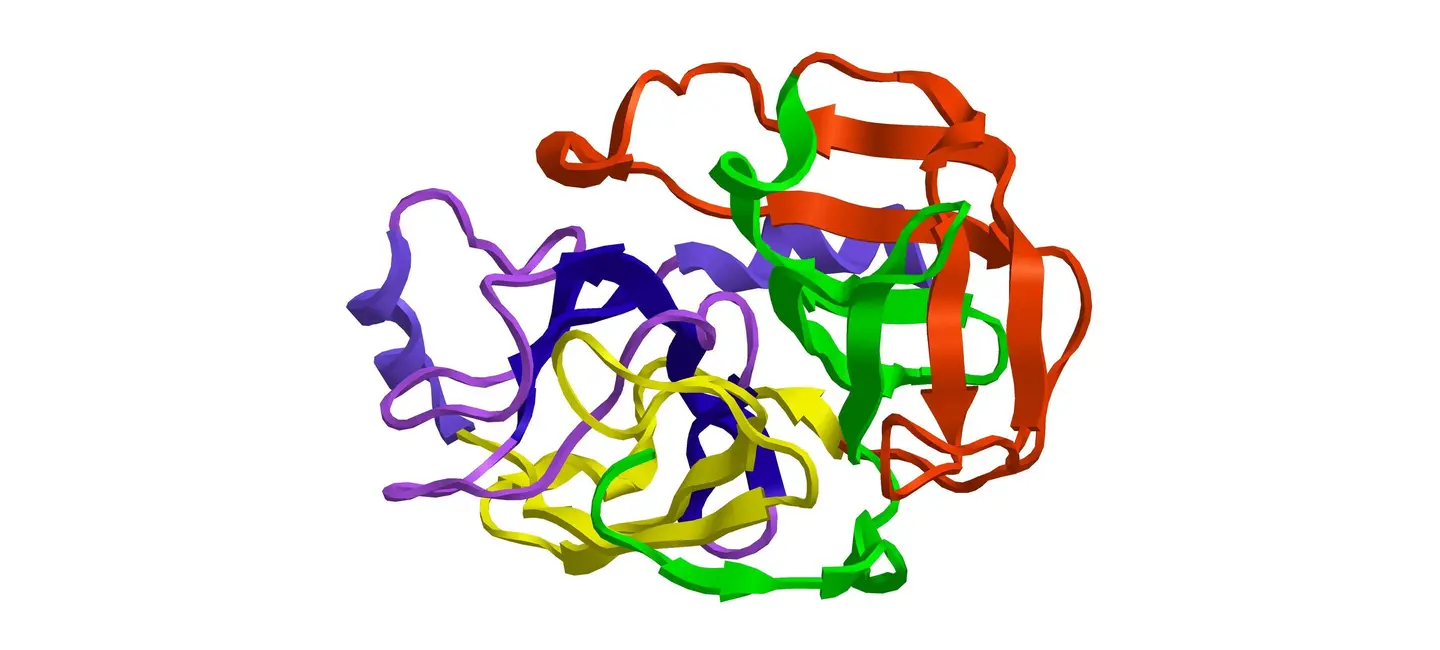
Trypsin is an enzyme that aids with digestion. An enzyme is a protein that speeds up a certain biochemical reaction. Trypsin is found in the small intestine. It can also be made from fungus, plants, and bacteria. But it is usually made for commercial purposes from the pancreas of livestock.
Trypsin is given to people who lack enzymes needed for digestion.
It is also given in combination with bromelain and rutin for treatment of osteoarthritis and many other conditions, but there is no good scientific evidence to support these other uses.
Some people apply trypsin directly to wounds and ulcers to remove dead tissue and improve healing.
Is It Effective?
NatMed Pro rates effectiveness based on scientific evidence according to the following scale: Effective, Likely Effective, Possibly Effective, Possibly Ineffective, Likely Ineffective, Ineffective, and Insufficient Evidence to Rate.
- Airway infections caused by exercise.
- Colon cancer, rectal cancer.
- Diabetes.
- Improving digestion.
- Infections of the kidney, bladder, or urethra (urinary tract infections or UTIs).
- Multiple sclerosis (MS).
- Muscle soreness caused by exercise.
- Osteoarthritis.
- Skin damage caused by radiation therapy (radiation dermatitis).
- Sprains.
- Swelling after surgery.
- Wound healing.
- Other conditions.
More evidence is needed to rate the effectiveness of trypsin for these uses.
Is it Safe?
Trypsin removes dead skin cells (tissue) and allows healthy tissue to grow. Trypsin in combination with other enzymes seems to reduce inflammation and swelling.
When applied to the skin: Trypsin is POSSIBLY SAFE when used by healthcare professionals for wound cleaning and healing. It can cause side effects such as pain and burning.
When taken by mouth: Not enough is known about the safety of trypsin for its other uses. Trypsin has been used in combination with other enzymes in clinical studies with no reports of serious adverse effects. But it is not known if trypsin taken by mouth as a single-ingredient is safe.
Special Precautions & Warnings:
Pregnancy and breast-feeding: Not enough is known about the use of trypsin during pregnancy and breast-feeding. Stay on the safe side and avoid use.
It is not known if Trypsin interacts with any medicines. Before taking Trypsin, talk with your healthcare professional if you take any medications.
There are no known interactions with herbs and supplements.
There are no known interactions with foods.
The appropriate dose of trypsin depends on several factors such as the user's age, health, and several other conditions. At this time, there is not enough scientific information to determine an appropriate range of doses for trypsin. Keep in mind that natural products are not always necessarily safe and dosages can be important. Be sure to follow relevant directions on product labels and consult your pharmacist or physician or other healthcare professional before using.
Enzyme Protéolytique, Proteinase, Protéinase, Proteolytic Enzyme, Tripsin, Tripsina, Trypsine.
Information on this website is for informational use only and is not intended to replace professional medical advice, diagnosis, or treatment. While evidence-based, it is not guaranteed to be error-free and is not intended to meet any particular user’s needs or requirements or to cover all possible uses, safety concerns, interactions, outcomes, or adverse effects. Always check with your doctor or other medical professional before making healthcare decisions (including taking any medication) and do not delay or disregard seeking medical advice or treatment based on any information displayed on this website.
© TRC Healthcare 2024. All rights reserved. Use and/or distribution is permitted only pursuant to a valid license or other permission from TRC Healthcare.
